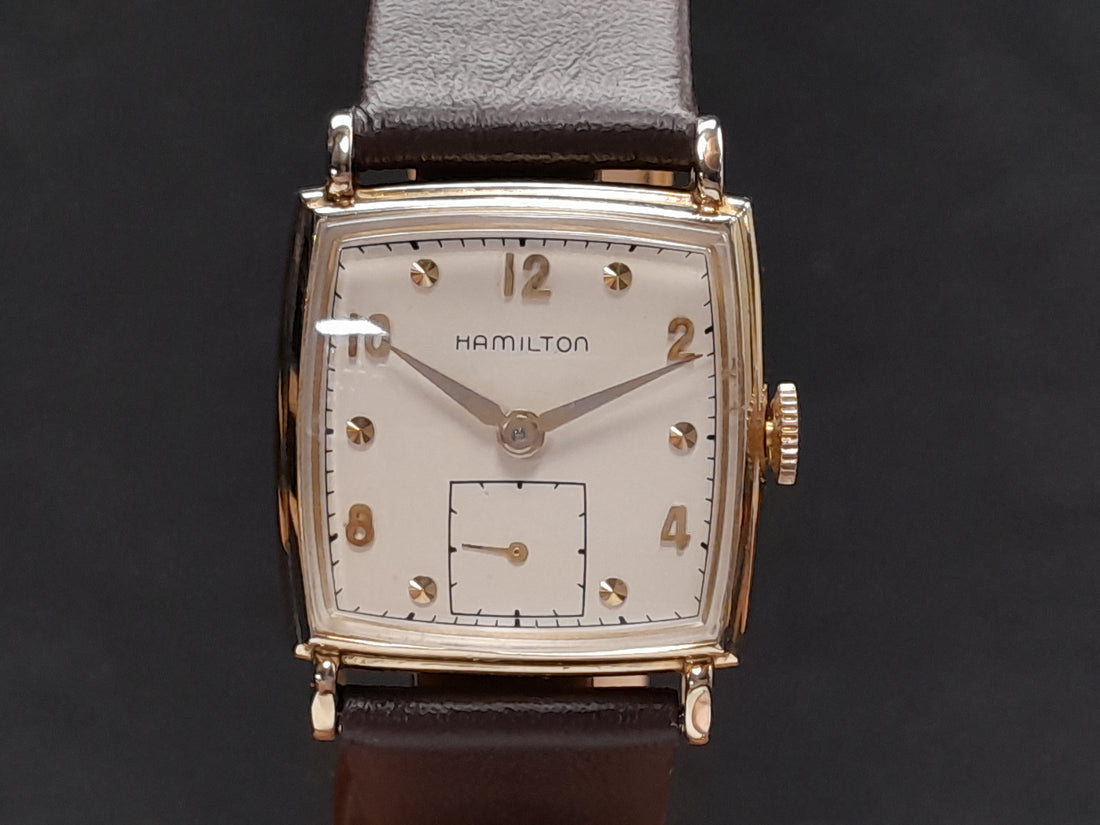1948 Hamilton Dyson | Restoration
Share

Hamilton produced the Dyson from 1948 through 1951. The Dyson was offered the 17 jewel caliber 747 movement and came with a 14k yellow gold filled case.
This example hit my bench in pretty good shape.

It's hard to see in this picture, but there are a few watchmaker's marks, meaning I'm not the first person to work on this watch.

And here is the venerable caliber 747. This was very much a workhorse movement for Hamilton. On quick inspection, this movement looks clean so I'm optimistic this will be a straight forward service.

On the reverse side of the dial there is also a watchmaker's mark, a clear sign it has been worked on sometime in the past. Everything looks original, so I'm thinking that it was just a cleaning and not a complete redial.

There was a lot of oil under the setting lever spring. This is usually a result of using too much oil and, over the years, the lubricant migrates to areas where it doesn't belong.

Hair is not an uncommon contaminant in vintage watches.

More excess oil under the barrel bridge as well.

This is a close up shot of old, dried oil in one of the pivot holes. Most of the other pivots are in similar condition. This is a common fault in vintage watches and, if left unchecked, can cause damage to the wheels.

Dirty pivots

Another common issue are set mainsprings. Blue steel mainsprings, like the one below, loose their springiness over time and aren't able to provide power for as long as they should.

I'll replace the old mainspring with a NOW white alloy mainspring. These mainsprings resist setting much better and will last as long as the watch.

After a trip through the heated ultrasonic machine, the parts have a nice sheen on them...

...even this broken pivot jewel! Not sure how I missed that during disassembly, but I'll have to get that swapped out and keep moving along.

There, much better. Now I just need to get the rest of the escapement installed.

I disassembled the balance cock to ensure the jewels were cleaned appropriately.

It's just a matter of reassembling them and securing them with the cap.

The balance wheel is then reinstalled into the balance cock. The hairspring stud is held in place by the hairspring stud screw.

With the dial and the hands installed, it's starting to look like a watch again.

The acrylic crystal was scuffed up, but nothing a few minutes of elbow grease and plastic polish couldn't take care of.

The crystal is then secured to the bezel with some watch adhesive, bringing this service to a close.
